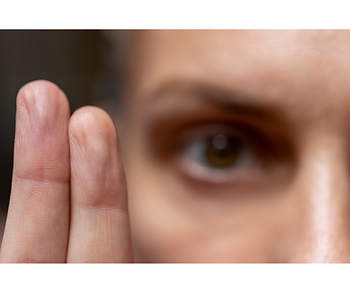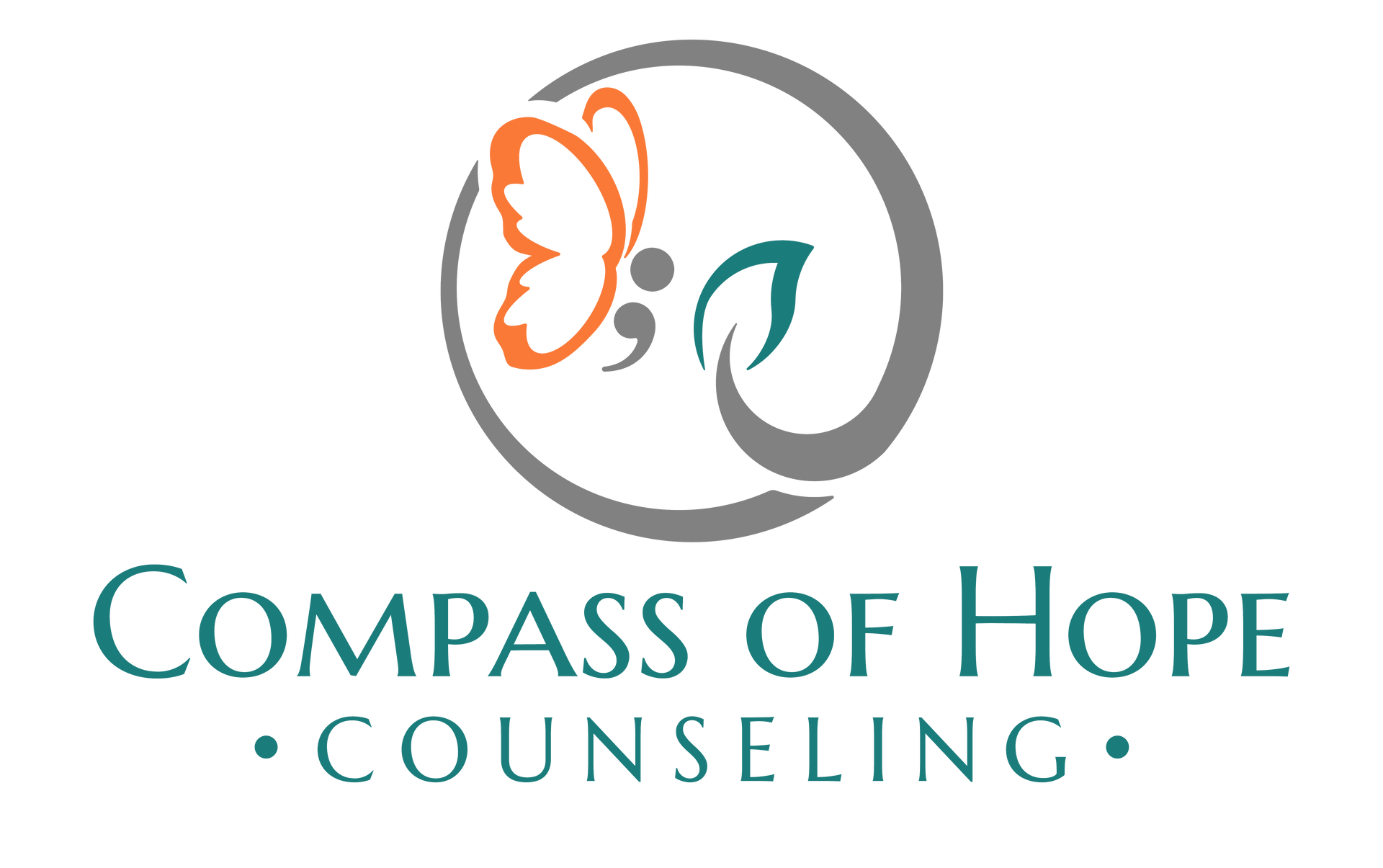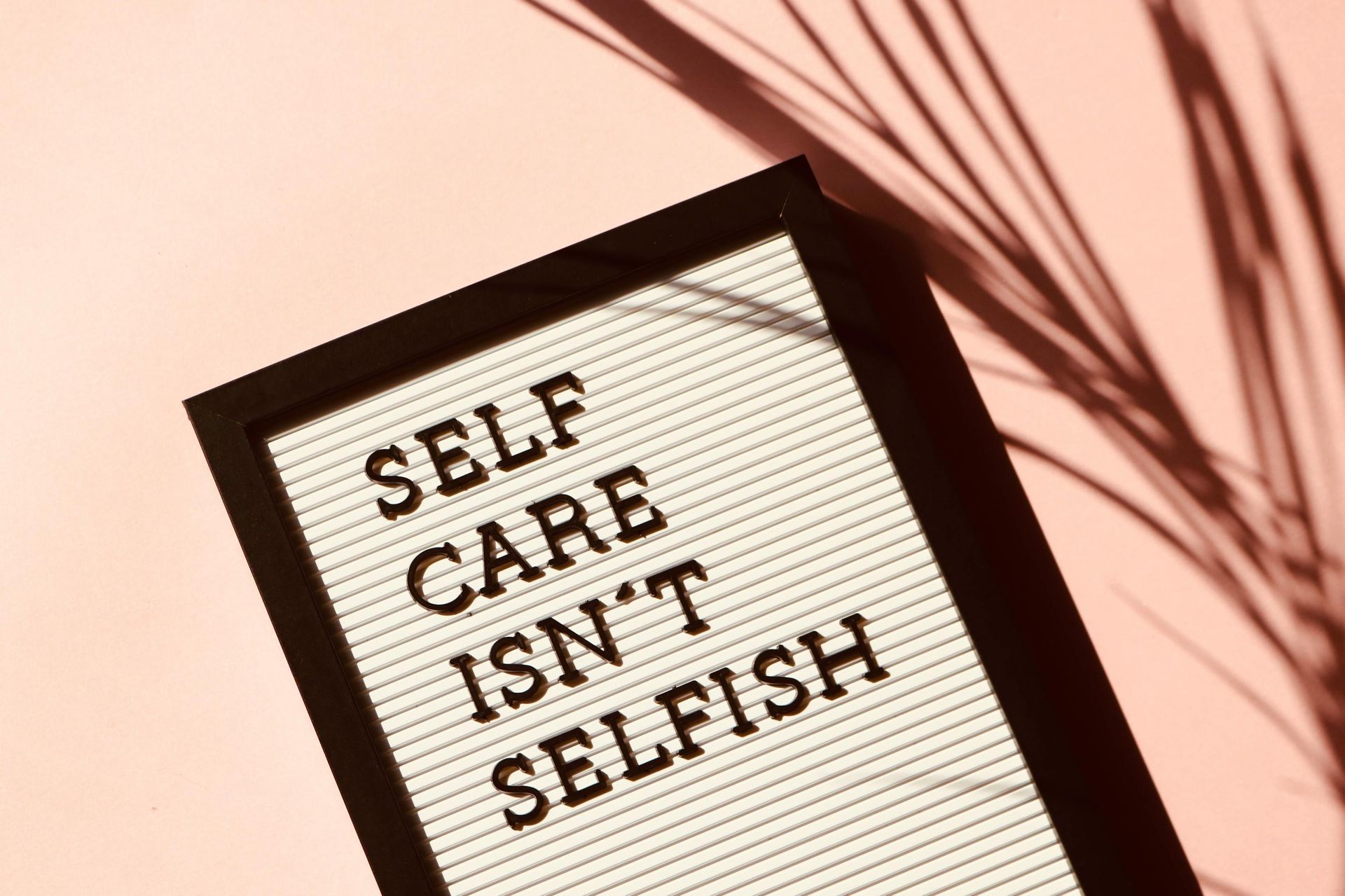Blog Layout
Healing the Heart: Nurturing Mental Health After Childhood Trauma
Brittany Barberian • August 17, 2023
Introduction
Childhood is a time of wonder, exploration, and growth. However, for some individuals, it can also be marked by experiences of trauma, leaving lasting imprints on their mental health. Childhood trauma can take various forms, such as physical abuse, emotional neglect, sexual assault, or witnessing violence. The impact of such trauma can be profound, affecting emotional well-being and relationships long into adulthood. In this blog post, we will explore the different types of childhood trauma, their effects on mental health, strategies to overcome trauma, and ways to foster good mental health after experiencing childhood trauma.
Types of Childhood Trauma
Understanding childhood trauma.
Physical Abuse: This involves intentional harm or injury inflicted upon a child by a caregiver or authority figure, often resulting in physical pain and emotional distress.
Emotional Neglect: Emotional neglect occurs when a child's emotional needs for love, care, and validation are consistently unmet, leading to feelings of abandonment and unworthiness.
Sexual Abuse: Sexual abuse involves any form of unwanted sexual contact or exposure forced upon a child. It can lead to deep emotional scars and difficulties with intimacy and trust.
Witnessing Violence: Children who witness violence between caregivers or within the community can suffer from feelings of helplessness, fear, and insecurity.
Effects of Childhood Trauma on Mental Health
Post-Traumatic Stress Disorder (PTSD): Many survivors of childhood trauma may experience PTSD, characterized by intrusive memories, nightmares, and heightened emotional arousal.
Depression and Anxiety: Childhood trauma can significantly increase the risk of developing depression and anxiety disorders later in life.
Low Self-Esteem: Trauma survivors may struggle with self-worth and suffer from feelings of shame and self-blame.
Difficulty Forming Healthy Relationships: Trust issues and challenges with emotional intimacy can hinder the formation of healthy relationships in adulthood.
Overcoming Childhood Trauma
Seek Professional Support
Therapy: Trauma-focused therapy, such as Cognitive Behavioral Therapy (CBT) and Eye Movement Desensitization and Reprocessing (EMDR), can be highly effective in processing and healing from trauma.
Support Groups: Joining support groups with other trauma survivors provides a safe space to share experiences, learn coping strategies, and build a support network.
Practice Mindfulness and Self-Compassion
Mindfulness: Practicing mindfulness techniques can help trauma survivors stay grounded in the present moment, reducing anxiety and reactivity to triggers.
Self-Compassion: Cultivating self-compassion involves treating oneself with kindness and understanding, counteracting the negative self-perceptions resulting from childhood trauma.
Expressive Arts Therapy
Art Therapy: Engaging in art, music, or dance therapy can offer a non-verbal outlet for expressing emotions and processing traumatic experiences.
Journaling: Keeping a journal allows individuals to explore their thoughts and feelings in a safe and private space.
Fostering Good Mental Health After Childhood Trauma
Building Resilience
Develop Coping Skills: Learning healthy coping mechanisms empowers individuals to navigate life's challenges and triggers effectively.
Set Realistic Goals: Breaking larger tasks into smaller, achievable goals can foster a sense of accomplishment and build self-confidence.
Nurturing Supportive Relationships
Seek Trusted Allies: Surround yourself with understanding and supportive friends, family members, or mentors who validate your experiences and provide encouragement.
Professional Support: Continue therapy or counseling to maintain progress and strengthen emotional resilience.
Practicing Self-Care
Prioritize Sleep: Quality sleep is essential for emotional regulation and overall well-being.
Engage in Physical Activity: Regular exercise boosts mood and helps reduce stress.
Mindful Nutrition: Nourish your body with healthy, balanced meals to support your mental and physical health.
Resources for Trauma Survivors
If you or someone you know is struggling with the effects of childhood trauma, the following resources can provide assistance and support:
National Child Traumatic Stress Network (NCTSN) - Offers resources and information on childhood trauma and its treatment.
RAINN (Rape, Abuse & Incest National Network) - Provides support for survivors of sexual assault.
SAMHSA (Substance Abuse and Mental Health Services Administration) - Offers a national helpline and resources for mental health support.
Supporting Trauma Survivors
If you wish to support someone who has experienced childhood trauma, consider the following:
Listen Non-Judgmentally: Create a safe space for them to share their experiences without judgment.
Educate Yourself: Learn about trauma and its effects to better understand their perspective.
Be Patient: Healing from trauma takes time, so offer patience and support during their journey.
Conclusion
Childhood trauma can cast a long shadow on mental health, but with the right resources, support, and determination, healing is possible. It is essential to acknowledge the impact of childhood trauma while fostering hope and resilience in survivors. By seeking professional help, practicing self-compassion, and surrounding themselves with a supportive community, trauma survivors can gradually embrace a brighter, healthier, and happier future. Remember, there is strength in vulnerability, and the journey toward healing is a courageous testament to the human spirit's resilience. Together, we can nurture a world where compassion and understanding light the path to recovery from childhood trauma.
Share
Tweet
Share
Mail

By Alex Risberg LICSW Candidate
•
December 17, 2024
Mindfulness-Based Cognitive Therapy (MBCT) is a form of therapy that was created to treat depression, specifically treatment-resistant depression. Developed by Zindel Segal, John Teasdale, and Mark Williams, MBCT combines elements of cognitive therapy with mindfulness meditation. Research has shown that MBCT creates structural changes within brain areas that are associated with depression (Brewer et al., 2011). This means that MBCT reforms the brain, something that antidepressant medications have not been shown to do. This blog post will introduce the main ideas behind MBCT and briefly review the research backing this effective treatment option.

By Cooper Dubuque CMHC
•
November 5, 2024
Dream analysis is often misunderstood or overlooked in therapy, but research shows it can be a powerful tool with many benefits for treatment. It can help clients gain self-awareness, engage more deeply in therapy, and address and explore core issues. It also can help foster a safe, trusting environment, helping therapists understand their clients better. Using dream analysis can provide a degree of separation that has even been used to support terminal cancer patients, helping them discuss difficult topics like health and mortality.

By Brittany Barberian
•
April 29, 2024
Medication management in mental health recovery is a critical aspect of treatment, often overlooked or misunderstood. For many individuals, medication is an essential component of their journey to well-being. This blog post will delve into the importance of medication management, how medications can help with mental health issues, and provide strategies for effective medication management. Whether you are concerned about your own medication management or are supporting someone on this journey, this guide will offer valuable insights. The Importance of Medication Management Medications play a crucial role in treating various mental health conditions, including depression, anxiety disorders, bipolar disorder, schizophrenia, and more. Here's why medication management is of utmost importance: 1. Stabilizing Symptoms: Medications can help alleviate the distressing symptoms of mental health issues, providing much-needed relief. They can stabilize mood, reduce anxiety, and control psychosis, allowing individuals to regain control of their lives. 2. Improved Quality of Life: By managing symptoms effectively, medications enable individuals to engage more fully in their personal and professional lives, fostering a better quality of life. 3. Prevention of Relapse: Proper medication management can help prevent relapses, reducing the likelihood of recurring episodes and the associated setbacks. 4. Reducing Risk of Self-Harm or Suicide: In some cases, psychiatric medications can be life-saving by reducing the risk of self-harm or suicide, especially during times of acute crisis. How Medications Can Help with Mental Health Issues Understanding how medications work is essential for anyone navigating mental health recovery: 1. Balancing Neurotransmitters: Many mental health conditions are linked to imbalances in brain chemicals called neurotransmitters. Medications work by either increasing or decreasing the levels of specific neurotransmitters, which can help regulate mood and cognition. 2. Stabilizing Mood: Mood stabilizers, such as lithium or anticonvulsants, are commonly prescribed for conditions like bipolar disorder. They help keep mood swings in check, preventing extreme highs and lows. 3. Alleviating Anxiety: Medications like selective serotonin reuptake inhibitors (SSRIs) and benzodiazepines can help reduce symptoms of anxiety, making daily life more manageable. 4. Easing Psychosis: Antipsychotic medications are used to manage symptoms of schizophrenia and related disorders, such as hallucinations and delusions. 5. Boosting Serotonin: Some antidepressants work by increasing the levels of serotonin, a neurotransmitter associated with mood regulation. This can help combat depression and anxiety. Strategies for Effective Medication Management Navigating medication management can be challenging, but the following strategies can simplify the process: 1. Open Communication: Maintain open and honest communication with your healthcare provider. Discuss any concerns or side effects you experience, and work together to find the right medication and dosage. 2. Adherence: Consistently take medications as prescribed. Set up a routine or use pill organizers to avoid missing doses. 3. Educate Yourself: Understand your condition and the medications you're taking. This empowers you to be an active participant in your treatment. 4. Monitor Side Effects: Be aware of potential side effects and report them to your healthcare provider. Adjustments can often be made to minimize discomfort. 5. Set Realistic Expectations: Medications may take time to show their full effect. Set realistic expectations and understand that not all medications work for everyone. 6. Holistic Approach: Medication is just one part of mental health recovery. Combine it with therapy, lifestyle changes, and a strong support system for comprehensive treatment. 7. Regular Check-Ins: Stay engaged with your healthcare provider for regular check-ups and adjustments to your treatment plan. Conclusion Medication management in mental health recovery is a multifaceted journey. Medications can play a crucial role in stabilizing symptoms, improving the quality of life, and preventing relapse. Understanding how medications work and applying effective management strategies is key to a successful recovery. Remember, you are not alone on this journey, and there is help and support available. By taking a proactive approach and working closely with healthcare providers, you can navigate the challenges of medication management and move towards a path of healing and well-being.

By Brittany Barberian
•
February 14, 2024
Introduction: Valentine's Day, with its romantic ideals and celebratory fervor, can evoke a spectrum of emotions. At Compass of Hope, we recognize the impact this day can have on mental well-being, whether you're in a relationship or navigating singleness. Let's explore the multifaceted relationship between Valentine's Day and mental health, offering strategies for a day filled with self-love and genuine connection, irrespective of your relationship status. Valentine's Day and Mental Health: A Complex Relationship The day dedicated to love can, paradoxically, spotlight feelings of loneliness, inadequacy, and stress for many. From the pressure to find the perfect gift to the portrayal of idyllic love on social media, Valentine's Day can amplify insecurities and stressors, affecting mental health. Facing the Challenges: Singleness: The emphasis on romantic love can exacerbate feelings of loneliness or isolation for single individuals. It's crucial to remember that self-worth is not tied to relationship status and to celebrate self-love and other forms of love in life. Financial Stress: The commercial aspect of Valentine's Day can lead to anxiety about the cost of gifts and experiences. It's important to focus on meaningful, heartfelt gestures that don't strain finances. Time and Energy: Balancing work, personal commitments, and the expectation to curate a special day can be overwhelming. Prioritizing self-care and setting realistic expectations can alleviate this pressure. The Pressure to Impress: The desire to create a perfect Valentine's experience can lead to stress and disappointment. Authenticity and open communication with your partner about expectations can foster a more enjoyable and less pressured day. Social Media vs. Reality: The portrayal of perfect relationships on social media can distort expectations. Embracing and celebrating your unique relationship or self-love journey is key. Strategies for a Positive Valentine's Day: Self-Compassion: Whether single or in a relationship, practice self-love and kindness, recognizing that self-worth is inherent and not dependent on external validation. Creative Expression: Opt for handmade gifts or shared experiences that reflect genuine emotion rather than material value. Setting Boundaries: It's okay to opt-out of Valentine's Day celebrations if it causes stress or discomfort. Honouring your feelings is a form of self-care. Community and Connection: Spend time with loved ones, friends, or community members who uplift you, celebrating love in its many forms. Digital Detox: Consider taking a break from social media to avoid comparison and focus on real-life connections and self-reflection. Conclusion: Valentine's Day, with all its complexities, offers an opportunity to reflect on love, expectations, and personal well-being. By embracing self-compassion, authenticity, and connection, the day can be a source of joy and fulfillment, regardless of how you choose to celebrate. At Compass of Hope, we're here to support your journey toward a balanced, healthy relationship with yourself and others, on Valentine's Day and beyond.

By Brittany Barberian
•
February 1, 2024
Introduction In the quest for effective mental health treatment, Eye Movement Desensitization and Reprocessing (EMDR) has emerged as a groundbreaking approach, particularly for individuals grappling with the effects of trauma. This comprehensive guide is designed to enlighten those considering EMDR therapy as a pathway to healing. What is EMDR? EMDR is a psychotherapy technique originally developed by Francine Shapiro in the late 1980s. It's designed to alleviate the distress associated with traumatic memories. Unlike traditional talk therapy, EMDR focuses on the emotional and psychological symptoms triggered by traumatic experiences. The Science Behind EMDR EMDR therapy is based on the Adaptive Information Processing model. This model posits that trauma can disrupt the brain's natural information processing system, leaving the traumatic memory unprocessed and causing ongoing distress. EMDR aims to kickstart and facilitate the brain's natural healing process. Who Can Benefit from EMDR? EMDR has proven effective for individuals with various trauma-related issues, including PTSD, anxiety, depression, and specific phobias. It's also helpful for those struggling with the emotional aftermath of personal loss, violence, or abuse. The EMDR Process: A Step-by-Step Guide History and Treatment Planning: The therapist assesses the client's history and develops a treatment plan. Preparation: The therapist introduces the client to the EMDR process and establishes trust. Assessment: The specific traumatic memory to be targeted is identified, along with associated beliefs and physical sensations. Desensitization: The therapist guides the client through sets of bilateral stimulation (typically eye movements), targeting the traumatic memory. Installation: The goal is to strengthen positive beliefs. Body Scan: Checking the body for any residual tension. Closure: Returning the client to equilibrium at the end of each session. Reevaluation: Reviewing the progress made. Who Can Administer EMDR? EMDR should be conducted by a trained and licensed mental health professional who has undergone specific training in EMDR therapy. Effectiveness and Success Rates Studies have shown that EMDR can be an effective treatment for trauma, with many patients experiencing substantial relief from their symptoms. The success rate varies, but research suggests that it can be highly effective, especially for PTSD. Supporting Research and Success Stories Numerous studies and personal narratives affirm the effectiveness of EMDR. For instance, a study by the EMDR Institute found significant improvements in trauma symptoms following EMDR therapy. How to Support Loved Ones Undergoing EMDR Supporting someone undergoing EMDR involves understanding the process, being patient, and offering emotional support. It’s crucial to respect their healing journey and provide a safe space for them to share their experiences. Choosing the Right EMDR Therapist Finding the right therapist is crucial. Compass of Hope offers EMDR treatments, provided by dedicated professionals, licensed specifically in EMDR. Referrals from healthcare providers or trusted online directories can be a good starting point, if you are unsure of where to find a licensed professional in your area. Conclusion EMDR represents a beacon of hope for many who have been shadowed by the aftermath of traumatic experiences. It offers a unique, scientifically-backed approach to mental health treatment, emphasizing the brain's innate capacity to heal from trauma.
Working Hours
CONTACT
Phone: (603) 824-3555
Fax: (603) 935-9389
Email: contactus@compassofhope.com
Billing: Extension 4, billing@compassofhope.com
Hooksett Office: 11 Kimball Drive Suite 104-105 Hooksett, NH 03106
(603) 824-3555 -
Extension 1
Hampton Office: 433-435 Lafayette Road Hampton, NH 03842
(603) 824-3555 -
Extension 2
Concord Office: 64 North State Street Concord, NH 03301
(603) 824-3555 -
Extension 3





